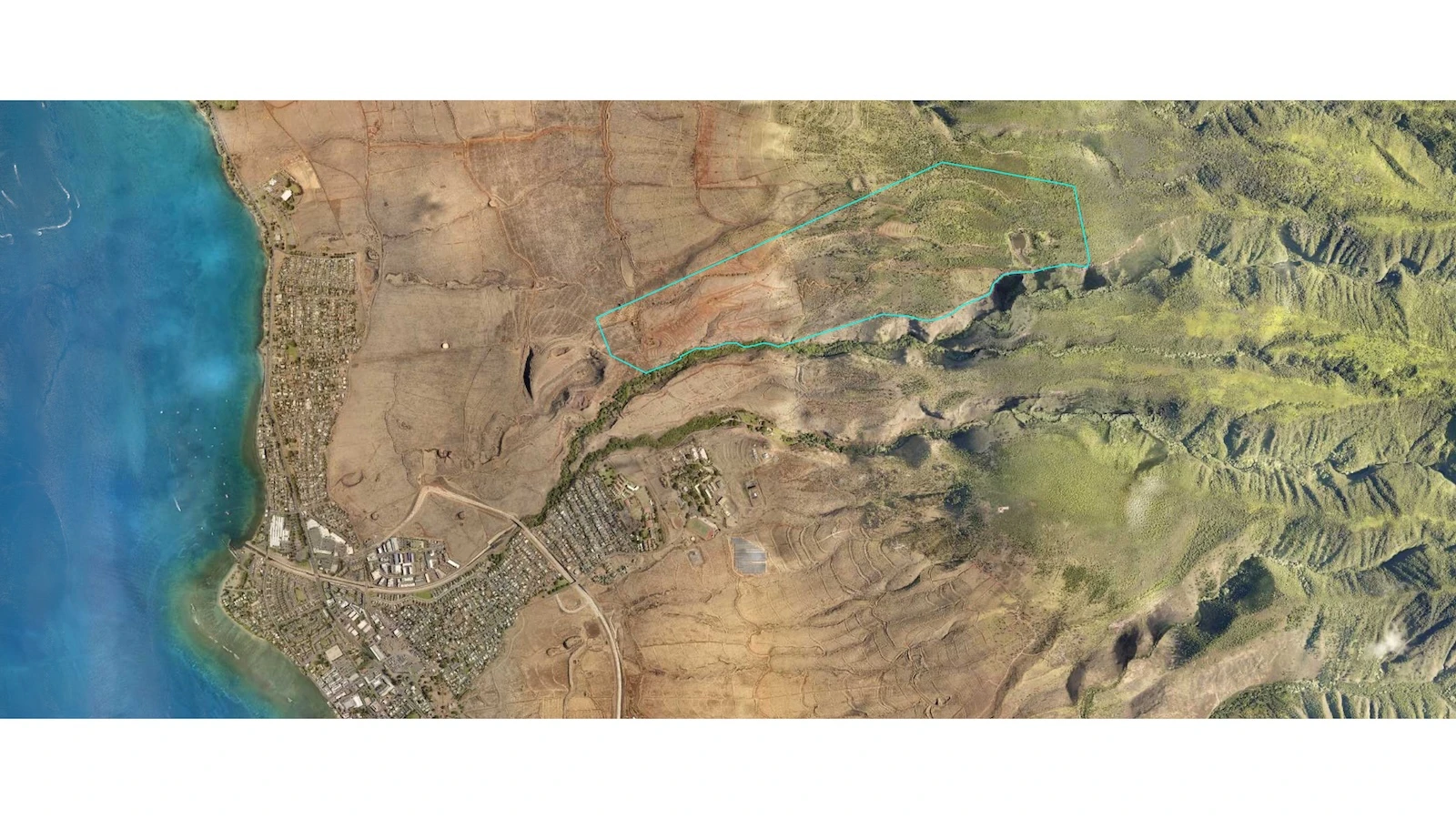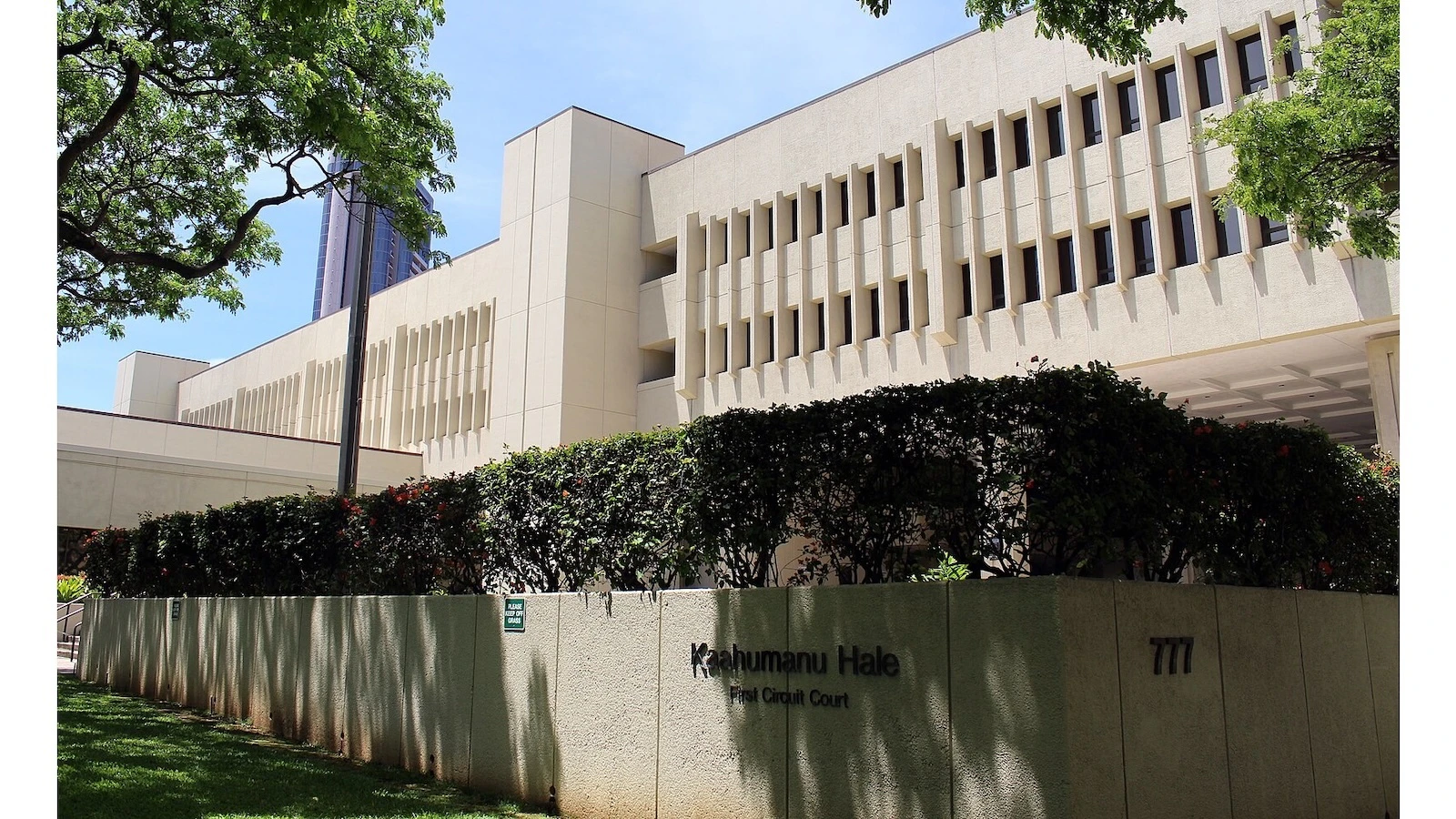A Maui land dispute more than a century old ended this week after a long-delayed state Supreme Court verdict.
In 1919, the Pioneer Mill Company filed an application claiming three parcels totaling 1,905 acres in Lahaina, which has left descendants of an ali‘i landowner fighting for decades to get that land back.
According to Hawai‘i Supreme Court records, Pioneer Mill’s claim to the largest of the three parcels was shaky, with an examiner at the time finding poor documentation to substantiate that claim. Pioneer Mill’s claim was based on “adverse possession,” a mechanism whereby a party without legal title to a property can still claim ownership based on continuous occupation of that property — in layman’s terms, “squatter’s rights.”
If Pioneer Mill’s claim was rejected, ownership of the parcel would revert to the previous titleholder, Hawaiian noble Charles Kana‘ina. While Kana‘ina had died in 1877, his heirs included Princess Bernice Pauahi Bishop and Princess Ruth Ke‘elikōlani.
However, it would be nearly 50 years before the matter ever came to court. In 1967, a judge finally ruled in favor of Pioneer Mill, but the Supreme Court of the time reverted the verdict in 1972, finding that the judge had no authority to actually make that call.
No subsequent trial took place during the 20th Century. During this time, Pioneer Mill was succeeded by Kahoma Land Company LLC, a hui formed in 2000 that manages nearly 700 acres of land along the Kahoma Stream on Maui.
Meanwhile, scores of people claiming lineage from Kana‘ina joined the suit over the decades. More than 100 descendants are named in the latest suit documents, but those documents also reference various other heirs apparent who died throughout the case.
And as the parties on both sides of the case evolved, so too did the land itself. At some point in the process, the parcel in question was subdivided into five lots, with the 458-acre “Lot 3A” — stretching from the Wahikuli Reservoir to the West Maui Forest Reserve — the main lot under contention.
In 2019, the Land Court awarded 78% interest in Lot 3A to Kahoma Land Company, with the remaining 22% awarded to the Kana‘ina descendants. In 2024, the Hawai‘i Intermediate Court of Appeals affirmed that decision.
But on Tuesday, the State Supreme Court overturned the Court of Appeals’ verdict, on the fairly straightforward basis that the century-long case has exceeded any sort of “reasonable” delay.
Writing for the opinion of the court, Associate Justice Sabrina McKenna found that the initial claims by Pioneer Mill to what would become Lot 3A should have been dismissed years before under the legal principle of “laches,” which refers to a lack of diligence in making a legal claim in a reasonable amount of time.
“Here, the 100-year delay in prosecuting this case to conclusion is unprecedented and is obviously unreasonable,” McKenna wrote. “Kahoma stands in the shoes of Pioneer Mill, which did not pursue the case for many decades at a time … Kahoma itself waited another nine years after receiving its deeds from Pioneer Mill before prosecuting the case.”
McKenna added that Pioneer Mill’s claim to the land was already uncertain in 2019, but because it took decades for the case to ever reach court, many people who could have been cross-examined had died.
“By the time Petitioners filed their motions to dismiss in 2015 and 2016, witnesses, Kanaʻina descendants, oral histories, and memories, were simply gone,” McKenna wrote.
The Supreme Court’s decision overturns the 2024 Appeals Court verdict and the 2019 Land Court decision, terminating the decree that interest in Lot 3A be split 78-22 between Kahoma and the descendants. With this, the case is remanded to Land Court for further proceedings — which, McKenna wrote, will finally dismiss Pioneer Mill’s claim on the land after 106 years.
Aloha State Daily reached out to Michael Matsukawa and Gary Shigemura, attorneys for the Kana‘ina descendants, for comment.
For the latest news of Hawai‘i, sign up here for our free Daily Edition newsletter.





